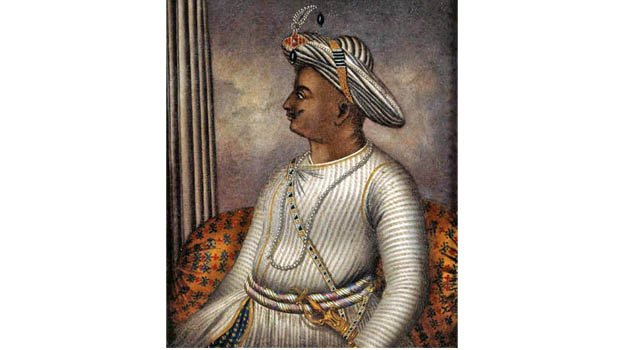How Tipu Sultan was the original tech innovator

BP Desk
Historians and researchers, on the other hand, regard the Tiger of Mysore as a secular, progressive king who was constantly on the lookout for the best global technology for his kingdom. Records suggest that he developed industries, laid the foundation of the silk trade and encouraged foreign technology . To advance these, Tipu established banking networks and cooperatives, where capital was raised from the public (similar to banks inviting deposits), the principal held on an annual basis.
In her book `Tiger: The Life of Tipu Sultan', Australian researcher Kate Brittlebank describes Tipu as a middlesized king with tawny complexion, broad chest, slender waist and short mustachios. Although he encouraged Islamic conversions, historical evidence never painted him as a fanatic.
“In fact, Tipu's attitude is primarily one of acceptance and understanding. This is most evident in his revenue and commercial regulations, which require his non-Muslim heads of departments to take oaths of service according to the conventions of their respective faiths. Additionally , the regulations instruct that when non-Muslim officials attend court, they are to be fed appropriately; or in other words, they should only be offered food permitted them," she writes.
Going cashless, in 18th century
“The British called him a shopkeeper,“ says historian Nidhin George Olikara, who specialises in Tipu Sultan. “He established trading houses for Mysore products worldwide, including places like Puducherry , Kutch, Karachi, Oman, Baghdad and Constantinople.“ Tipu, Olikara explains, preferred to do cashless, barter transactions for two reasons -one was to create a market for Mysorean goods and workmen abroad and the other, more important reasonwas to curtail the drain of wealth out of India, which the Europeans, especially the British, were notorious for. He realised that trading in currency would sap Mysuru's purchasing power at some point.How Tipu Sultan was the original Tech innovator
One incident that highlights Tipu's economic strategy was a procurement deal with France in October 1788. When the French wanted to import pepper, sandalwood, cardamom, cotton yarns, gum and ivory , Tipu demanded that the goods be paid for by articles including cannons, ammunition, silk and woollen goods. “Only the balance, if any , would be paid in bullion or silver," pointed out Olikara.
Long before the Nehruvian fillip to public sector undertakings, Tipu Sultan ruled that certain key industries would be monopolised by the State. This included sugar, salt, iron, tobacco, sandalwood and mining of silver, gold and precious stones.
TECH BUFF WHO MODERNISED WARFARE
Tipu Sultan's library was apparently filled with translations of world literature. The `Tiger of Mysore' would make handwritten observations of foreign countries. Ships arriving at his port in Mangaluru would bring various gadgets like telescopes and barometers. He often asked European ambassadors to bring him the latest technology from their lands instead of precious stones and jewellery .
Partly inspired by the industrial revolution sweeping Europe, the ruler modified foreign technology to meet his ends. The Manjarabad Fort in Sakleshpur, Hassan, is an example of his fascination with Western ideas. Built in 1792, it was based on military fort design developed by French architect Sébastien Le Prestre de Vauban.
“Tipu Sultan was perhaps the first ruler to understand that there was a marked difference between Europe of the 1700s and 1790s, thanks to scientific innovations,“ says aerospace scientist Roddam Narasimha, who has been studying Tipu's rockets for many years now. “He realised the power of technology , combined with discipline, and set up four in novation hubs (like modern-day tech parks) in Bengaluru, Chitradurga, Srirangapatna and Bidanur. He called them Taramandalpets."
Narasimha explains how these hubs took advantage of India's long tradition of producing and handling ferrous metals like iron and steel to create the predecessor of the modern rocket that was more effective than the “firecracker-like missiles" used by the Chinese
Tipu created iron tubes filled with gunpowder, hoisted them on flags or bamboo poles and mounted them on ramps for better accuracy and range. His rockets led to the defeat of the British in the second Anglo-Mysore war of 1782, their first in India. India, Narasimha points out, does not have a single rocket of Tipu's even though it inspired inventions worldwide. “They are all preserved in England," he says.
AN IDEA CALLED REPUBLIC
Narendar Pani of the National Institute of Advanced Studies points out that Tipu's association with the French to counter the British led him to be fascinated by the Jacobin Club (popular political group of the French Revolution that identified with egalitarianism and violence). “He wanted to create a Republic in Srirangapatna on similar lines,“ Pani says.
A lesser-known fact about Tipu Sultan is that he laid the foundations for the construction of the Krishnaraja Sagar dam in Mandya, says Mansoor Ali, founder, Bengaluru By Foot, a fact attested by a stone plaque. “Unlike today , Tipu's industrial belt spread across the Mysore State -from Bengaluru to Srirangapatna -so that locals everywhere find employment, and if the British attacked one centre, he still had control over the others."
Apart from eliminating middlemen in the collection of land revenue, Tipu Sultan also got experts from across the world to further the silk cottage industry that Mysore became famous for. “The Mysore Lancers were derived from what remained of the original army that Tipu Sultan raised and trained,“ says Ali. Ali questions the idea of `Tipu Jayanti' -initiated by the Congress government in the state and bitterly criticised by the Bharatiya Janata Party -when the monuments built by the Tiger of Myso ..
Source: Internet



